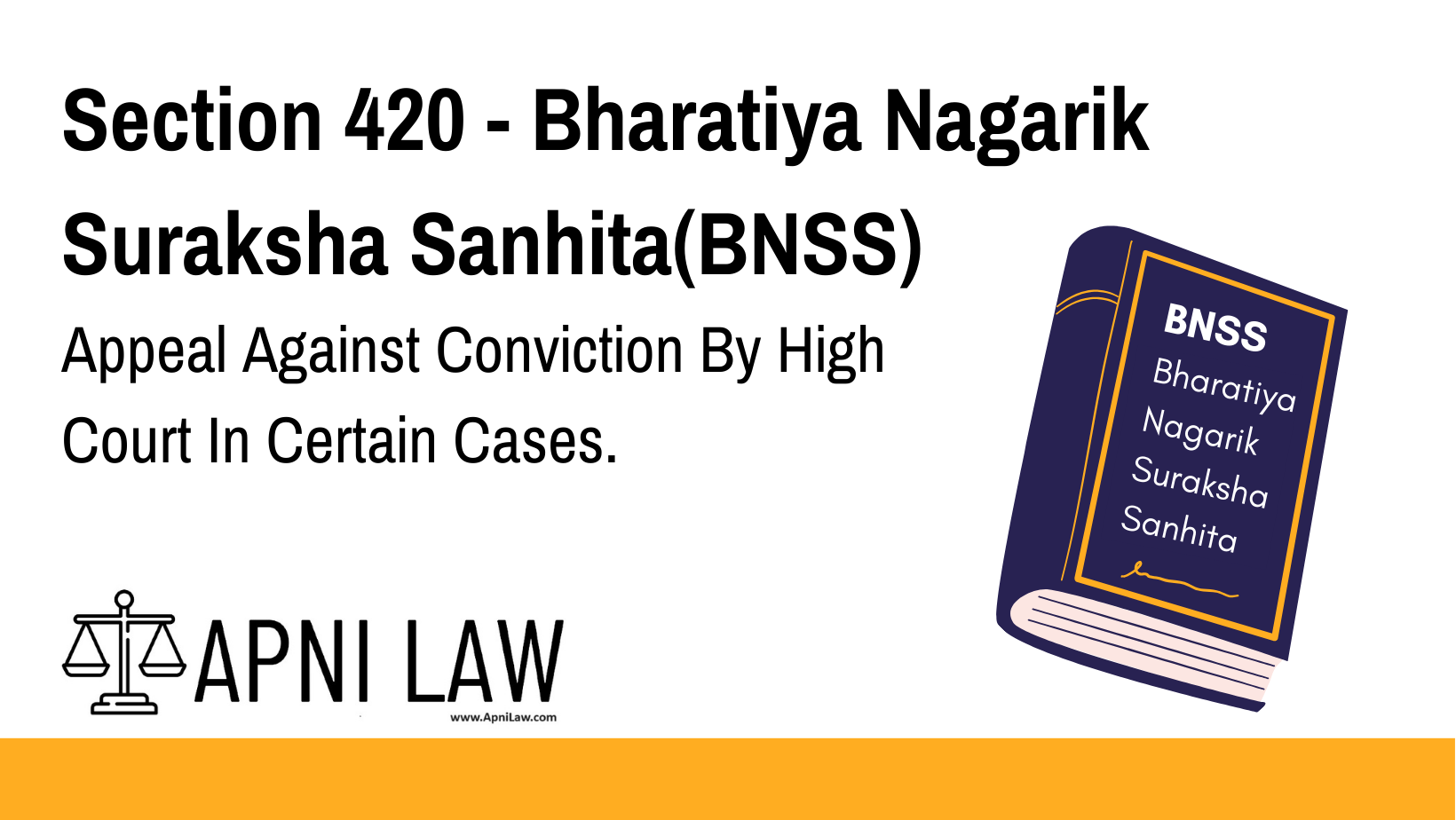Code
Section 420 BNSS
Where the High Court has, on appeal, reversed an order of acquittal of an accused person and convicted him and sentenced him to death or to imprisonment for life or to imprisonment for a term of ten years or more, he may appeal to the Supreme Court.
Explanation of Section 420 BNSS
This section provides a fundamental safeguard for an accused person when the High Court overturns an acquittal and imposes a severe sentence. It ensures that those convicted in such serious cases have a right to appeal before the Supreme Court.
1. When Can an Accused Appeal to the Supreme Court?
The accused can appeal to the Supreme Court if:
✅ The High Court reverses an acquittal on appeal.
✅ The High Court convicts the accused and imposes one of the following sentences:
- Death penalty
- Life imprisonment
- Imprisonment of ten years or more
Illustrations
Example 1: Appeal Against Death Sentence
- A Trial Court acquits Ramesh in a murder case.
- The State Government appeals to the High Court.
- The High Court reverses the acquittal, convicts Ramesh, and sentences him to death.
- Under Section 420 BNSS, Ramesh has the right to appeal to the Supreme Court.
Example 2: Appeal Against Life Imprisonment
- A businessman, Ajay, is acquitted in a major fraud case.
- The victim appeals to the High Court.
- The High Court overturns the acquittal and sentences Ajay to life imprisonment.
- Under Section 420 BNSS, Ajay can appeal to the Supreme Court.
Example 3: Appeal Against 10+ Years Sentence
- A Trial Court acquits Priya in a drug trafficking case.
- The Central Government appeals to the High Court.
- The High Court convicts Priya and sentences her to 12 years in prison.
- Priya has the right to appeal to the Supreme Court.
Common Questions and Answers
1. Does this section apply to all convictions by the High Court?
No. Section 420 BNSS applies only when:
- The High Court reverses an acquittal.
- The High Court imposes a sentence of death, life imprisonment, or 10+ years.
2. Can the accused appeal if the sentence is less than 10 years?
No. If the sentence is below 10 years, the accused cannot appeal under this section.
3. Does the Supreme Court automatically accept all appeals?
No. The Supreme Court will review the case and decide whether to grant leave for appeal.
4. Can the State appeal under this section?
No. Section 420 BNSS applies only to appeals filed by the accused.
Conclusion
Section 420 BNSS safeguards the rights of an accused person, ensuring they have the final opportunity to challenge a High Court’s decision in serious cases. By allowing appeals only in cases of severe punishment, it balances the right to appeal with judicial efficiency.
For more legal insights, visit ApniLaw! 🚀








